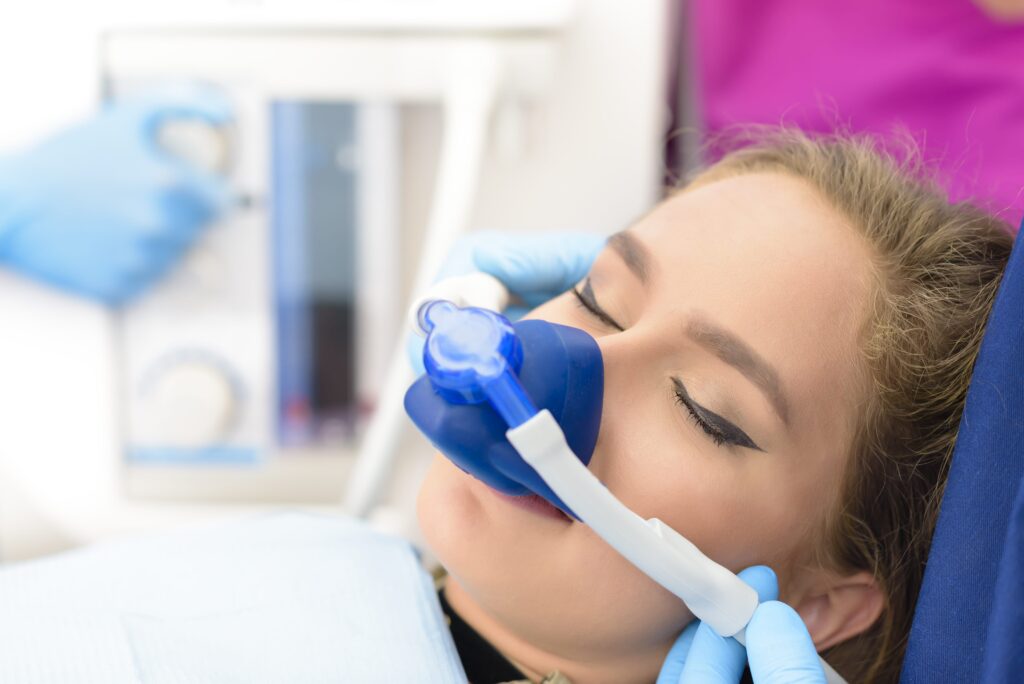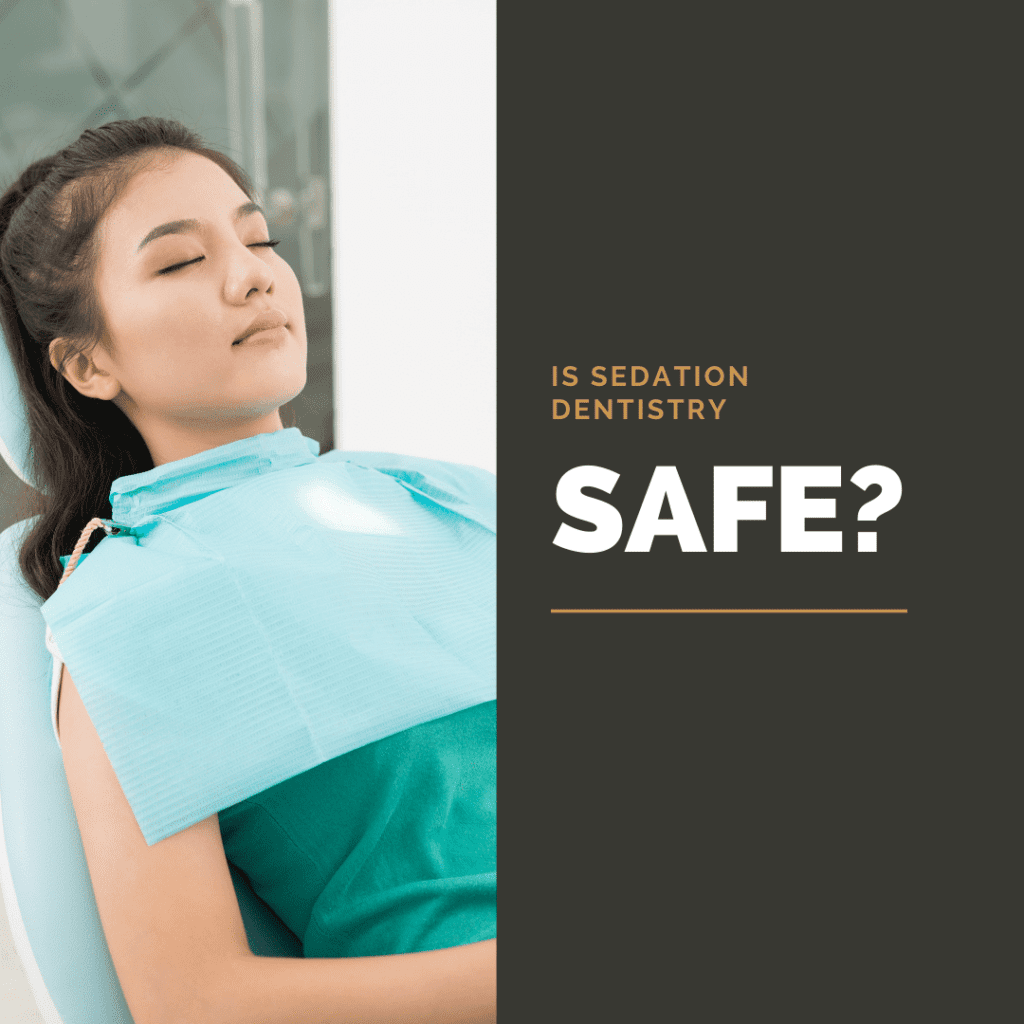There is a lot of confusion about dental sedation. Some people think that it is unsafe, while others believe that it is the only way to get dental work done. In this blog post, we will discuss the different types of sedation and how they are administered. We will also talk about how sedation affects the body and what to expect when under sedation. Finally, we will discuss who is an ideal candidate for dental sedation and who may be at an increased risk of complications. We will also list specific conditions where dental sedation is not recommended.
Types of Dental Sedation
There are three main types of dental sedation: inhalation, oral, and IV.
- Inhalation sedation, also known as laughing gas, is inhaled through a mask during the procedure. This achieves a minimal level of sedation
- Oral sedation is taken by pill form an hour before the procedure is scheduled to begin. This achieves a moderate to deep level of sedation, depending on the dosage.
- IV sedation is administered through a vein in the arm and takes effect almost immediately. This achieves a moderate to deep level of sedation, depending on the dosage.
How Dental Sedation Affects the Body

Dental sedation affects the body by causing drowsiness and relaxation. It is important to note that not all forms of dental sedation put you to sleep. The level of sedation will be different for each person depending on their individual tolerance. Here are the different levels of sedation:
- Minimal sedation: You are awake and able to respond to questions but may feel drowsy.
- Moderate sedation: You are less aware of what is happening around you and may not remember the procedure.
- Deep sedation: You are close to being asleep and may not be able to respond to questions or commands.
Candidates for Dental Sedation
Dental sedation is generally considered safe for healthy adults. Candidates for dental sedation include:
• People with a fear of needles
• People with a fear of the dentist
• People with sensitive gag reflexes
• People who have had previous traumatic dental experiences
• Children who are uncooperative during dental procedures
However, there are some people who may be at an increased risk of complications. These include people with heart conditions, lung disease, or diabetes.
There are also some specific conditions where dental sedation may not be recommended. These include pregnancy, severe obesity, and sleep apnea. If you have any of these conditions, be sure to speak with your dentist before scheduling a procedure.
So, is Sedation Dentistry Safe?
When performed correctly, sedation dentistry is considered to be safe for most healthy children and adults. In some cases, there may be additional risks for some people, and some people may not be ideal candidates for all types of sedation dentistry. However, the only way to know for sure is to be evaluated by a sedation dentist.

Dr. Admar holds dual certificates — a Bachelor of Dental Surgery (BDS) in 2010 from India and a Doctor of Dental Surgery (DDS) in 2014 from Canada. He is now a full time practicing dentist in Kamloops where he provides a variety of services, including emergency dentistry. Dr. Admar spends hundreds of hours in continued dental education to stay up to date in cosmetic and implant dentistry and he has achieved several advanced qualifications.


